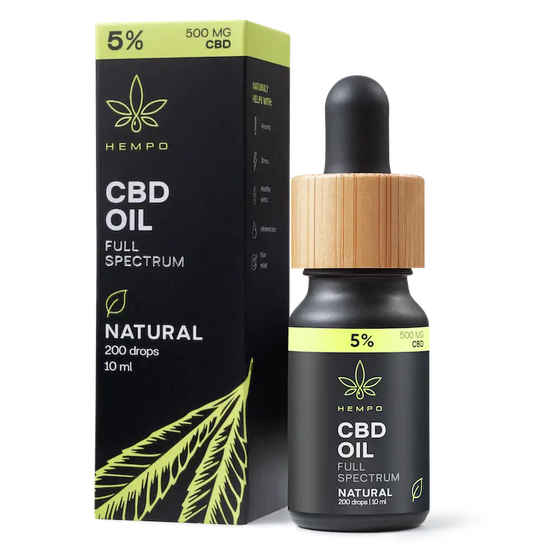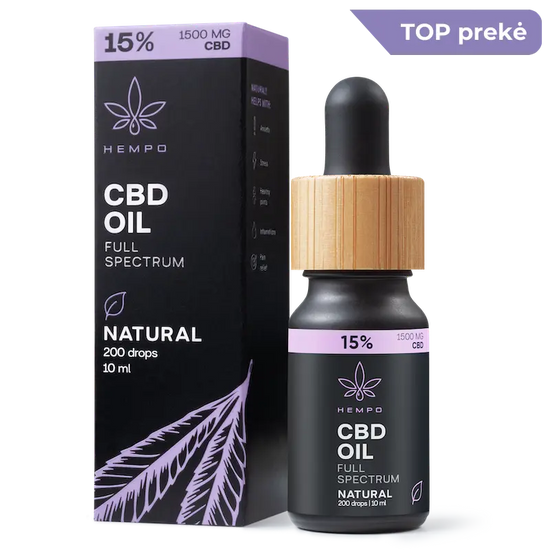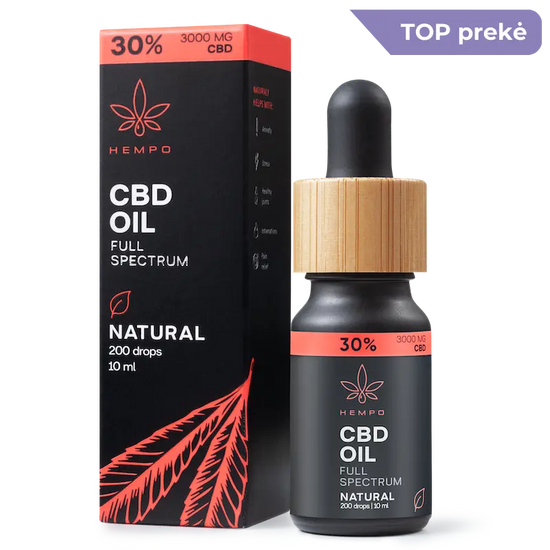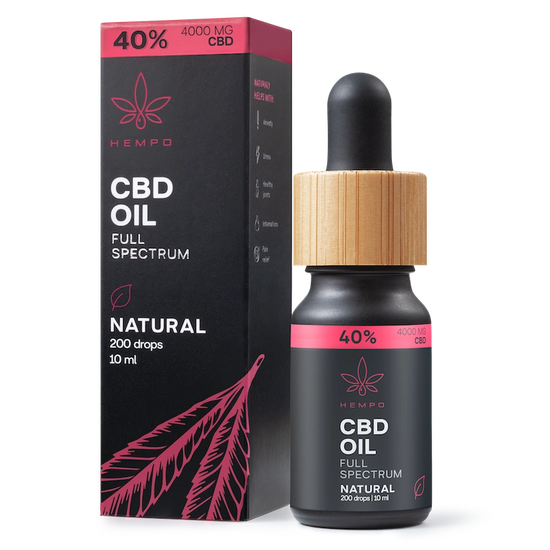CBD and pregnancy: is it safe to use during pregnancy?
The use of CBD during pregnancy is an increasingly hot topic. Experts note that pregnant women try CBD, or cannabidiol, products for a variety of reasons: hormonal imbalance, frequent mood swings, decreased appetite, persistent nausea, etc. But is the effect of this product really proven and safe? It's time to answer this question!
The effects of CBD on a developing fetus are not fully confirmed by scientists, so it is important to consult a doctor before using CBD during pregnancy or while breastfeeding. Pregnant and breastfeeding women are advised to choose CBD products where THC has been completely removed.
Table of Contents
Note: This and other articles on Hempo's blog are for informational purposes only. According to the directive of the European Commission, cannabidiol is classified as a 'novel food', therefore CBD products should not be used as a food supplement in Lithuania.
What is CBD?
Granted, due to a lack of information, people sometimes confuse cannabidiol with tetrahydrocannabidol, or THC. These are two very different substances, although both are derived from the hemp plant.
THC has a psychoactive effect: it can cause hallucinogenic effects or intoxication. Although products sold in Lithuania have a maximum THC content of 0.2%, this substance is not safe during pregnancy.
Meanwhile, CBD is not psychoactive and does not cause side effects or allergies. That's the main difference. CBD provides a different effect: it helps relax, suppresses inflammatory processes, improves sleep, deals with stress and much more.
Once in the body, cannabidiol interacts with your endocannabinoid system (ECS). It is a completely natural, biological system made up of endocannabinoids, cannabinoid receptors located throughout the central and peripheral nervous systems of vertebrates. The endocannabinoid system is still being studied, but it is likely to be closely related to the regulation of physiological and cognitive processes, including fertility, pregnancy, fetal development, immune system functions, appetite, pain perception, mood, memory, and many other vital functions.

A woman's well-being during pregnancy
Although doctors consider many of these symptoms normal, this does not mean you have to suffer. Some symptoms, such as fatigue, nausea, a bad mood and constant pain in various parts of the body, can cause discomfort to the mother. Unpleasant emotional and physical changes, biochemical processes in the brain can also lead to depression or anxiety disorders and harm the unborn child.
That's why, in some cases, doctors prescribe expectant mothers painkillers or even anti-depressants. Unfortunately, the problem with these medications is that they have side effects and can make things even more complicated. With this in mind, mothers are trying to find alternative solutions with fewer or no side effects. CBD is a perfect example.
Is it Safe to Use CBD While Breastfeeding?
Alternative Measures to Ease Breastfeeding
CBD and pregnancy: benefits
CBD successfully suppresses nausea and vomiting
Nausea is a common symptom during pregnancy. This is due to increased hormone levels and changes in hormone activity. Cannabidiol interacts with various receptors and stimulates the release of the hormone serotonin in the body. It relieves stress and normalizes hormonal activity, allowing expectant mothers to cope with nausea and vomiting more easily.
CBD relieves stress and anxiety
Another common pregnancy symptom is anxiety. If left untreated, this condition can worsen and harm the unborn baby. That is why women use CBD, which works together with the endocannabinoid system and provides a calming effect, helping not only to relieve stress, but also to sleep better.
Cannabidiol can help with mood swings
Mood swings during pregnancy are caused by hormonal imbalances. While this condition is normal, doctors note that drastic mood swings can affect a woman's productivity, personal and social life throughout pregnancy. CBD interacts with different receptors in the brain responsible for mood and helps to ease the emotional state, relax and mitigate mood swings.
CBD can relieve pregnancy pains
Another common condition during pregnancy is pain in the abdomen, joints, back and other parts of the body. CBD works with the endocannabinoid system to prevent the absorption of the anandamide hormone. Anandamide is a lesser known but very important hormone: it is an endocannabinoid found in the human endocannabinoid system that helps relieve pain and improve mood. CBD increases its amount in the body, which reduces pain and makes pregnant women feel much more comfortable.
Possible Side Effects of Using CBD During Pregnancy
The use of CBD during pregnancy has become a continuous topic of discussion, raising additional questions about the risks of using CBD (which contains THC) during pregnancy. Scientific studies conducted in 2023 emphasize that the impact of cannabidiol on fetal development is not yet fully understood, prompting healthcare professionals to advise against the use of this substance during pregnancy. Regarding the potential side effects of using CBD (which contains THC) during pregnancy, it is important to note that several studies indicate possible risks associated with altered fetal brain development and other long-term adverse effects on fetal health. This uncertainty further confirms the importance of cautiously evaluating the use of CBD during pregnancy.
The ambiguities surrounding the use of CBD during pregnancy raise concerns for expectant mothers seeking a smooth pregnancy. As new scientific studies are continuously conducted, it is essential for all women interested in using CBD during pregnancy to stay informed about their results. A study published in the 2023 "Journal of Prenatal Medicine" indicated that the use of CBD (which contains THC) during pregnancy might also interfere with the normal development of the fetal nervous system. However, the scientific community agrees that more extensive research is needed to confirm these findings.
In summary, while the therapeutic benefits of CBD are undeniable, its use during pregnancy remains a contentious issue. Expectant mothers considering the use of CBD during pregnancy should consult with healthcare professionals who can help assess potential risks and make informed decisions based on available information.

Alternative Measures to Ease Pregnancy
CBD and pregnancy: what do experts say?
As CBD oil and other hemp products gain huge interest, more research will be done on the effects of cannabidiol on pregnant women in the future. Hopefully, they will substantiate the benefits of CBD for expectant mothers and prove the safety of this product.
Safe use of CBD
In most cases, you should take CBD orally to increase its effectiveness and shorten the time it takes to feel the positive effects. The only problem with oral use is that CBD is transported in the bloodstream. It means that CBD can also affect the fetus. That's why moms-to-be need another method of taking CBD.
The best way is to do it locally: choose the right oil (CBD extract) and apply it to the desired areas of the body. This way, cannabidiol does not affect the fetus and penetrates directly into the problem area, while you can enjoy excellent results without endangering the fetus.
Although CBD has practically no side effects, you should consult a competent doctor before using cannabidiol oil and other cannabidiol products. Only then can you be sure that CBD will not have any side effects during pregnancy.





